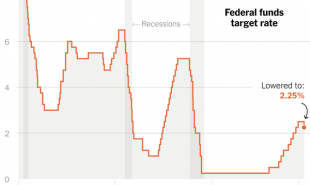
The Direct Democracy President- By Scott Adams
Posted August 22nd, 2016 @ 8:59am
To many people – if not most – Donald Trump looks like the type of candidate who would become a “strongman” president, ignoring the advice of experts and the opinion of the people. That’s the persuasion framework that Clinton has created in your mind, probably with the help of the Master Persuader I call Godzilla.
But does the evidence support that view? I see the opposite.
Months ago, when Trump stumbled on his answer about criminal penalties for women who seek illegal abortions, the public went nuts, and Trump immediately corrected his position. That’s direct democracy. Trump heard the opinion of the majority and instantly adopted it.
Consider Trump’s proposal to ban all Muslim immigration. The public felt his position was too extreme, and let him know. Eventually, Trump softened his stance to talk about countries of origin, not religion. The public still wasn’t pleased, so Trump softened again to his current position of “extreme vetting.” That evolution in policy looks like direct democracy to me. The public told Trump what it wanted, and Trump evolved to it.
Likewise, we found out this week that Trump’s plan to deport 11 million Mexicans living in the United States illegally has some wiggle room. Maybe there won’t be so much deporting after all. Because the public doesn’t want it.
Consider also Trump’s public persona. We witness that he is using the teleprompter (as advised) and crafting a friendlier version of himself, which is exactly what the public asked of him.
Hear/watch my extended conversation with Stefan Molyneux
Recently we’ve seen the question of Clinton’s health and stamina become a big topic on the Internet. Most of the “evidence” is confirmation bias, but the question is probably big enough now that the media has to ask the candidates some questions about their health or they won’t be doing their jobs. The public wants it, the media will comply, and the candidates will be held to their answers. That feels like direct democracy.
If you fear direct democracy, I just gave you several reasons to feel comfortable with it. In olden times, direct democracy could lead to an uninformed mob with pitchforks. When you add ignorance to direct democracy, things won’t go well. But in the age of the Internet, direct democracy forces people to virtue-signal, and we see in my examples above that the crowd moves toward kindness as a group. The crowd rejected penalties for women getting ILLEGAL abortions. It rejected deportation of 11 million ILLEGAL Mexican residents. And so far, the public prefers to accept some terrorist risk in the homeland in order to show kindness to Muslim immigrants who need help.
Do you remember how the Republican Party used to have a lot more conflict with the LGBTQ community? Trump is trying to change that – and succeeding – because the public backs him.
Direct democracy in pre-Internet days was a bad idea because it gave power to ignorance. But direct democracy in 2016 is more about the public squeezing the evil out of its own leaders. Evil doesn’t like sunlight. It doesn’t like Trump’s unkind immigration plans and it doesn’t like the Clinton Foundation – which just announced it would stop taking foreign donation if Clinton is elected. The public gets what the public demands.
In my opinion, social media has effectively replaced the American system of government that was designed as a republic. In horse-and-buggy times, we elected smart people to go to Washington and make smart decisions on our behalf. The public would learn about the decisions later. But in 2016, the public makes the decisions and the politicians follow along. Social media makes that possible.
Quickly, name a policy idea from a major candidate that is both deeply unpopular with the public and also likely to become a law. I can’t think of one. That isn’t even a thing anymore. If the public doesn’t like it, the leaders can’t do it. Period.
To be fair, some unpopular laws might slip through the system in the short run. But the public will be brutal in those cases, and even the exceptions are likely to be trivial and temporary.
In my opinion, Trump is likely to be the first direct-democracy president. He’ll do what the public wants and avoid doing what they dislike. The public expects its leaders to try and change their minds about things, but in the end the public will decide and the leaders will follow.
Clinton’s team – presumably with the help of Godzilla – might have persuaded you to fear a Trump presidency. The reality is that the public already controls Trump, and the public’s instinct is toward kindness, and even self-sacrifice, when everyone is watching.
Social media ensures that everyone is watching.
If you think Clinton would do a better job than Trump as president, you can make a convincing argument for that, given her experience and whatnot. But a Clinton presidency would still have the vestiges of a republic, with decisions being made by special interest groups, and sold to the public with a web of confusion. (Let’s call it a confusopoly system for government.)
A Trump presidency is likely to be the first direct-democracy presidency. If you think a Trump presidency – guided by the kindness of the public – would be extra-dangerous, you have been hypnotized. The evidence strongly suggests the opposite. Our direct democracy has already demonstrated that it prefers kindness to evil.
For the first time in human history, love is in a winning position compared to evil. Take a moment to thank Facebook and Twitter for that. It’s a big deal.
—
If you like to love, you might love to like my book. But it would be more coincidence than causation.
Other Reading
- Will The Bubble Pop Regardless If the Fed Doesn't Raise Rates?
- Clinton Foundation Gets Ethics: after the fact
- Trump Advisor calls for Gold Standard: "Money that transcends borders and time"
- These Olympian Gold Royalty Companies Are Insanely Attractive
Read more by Soren K.Group








